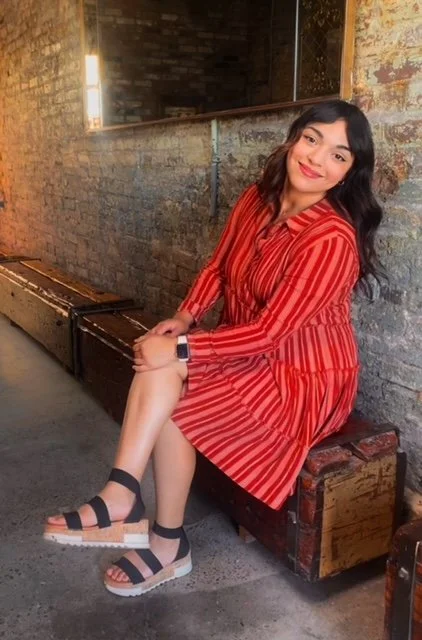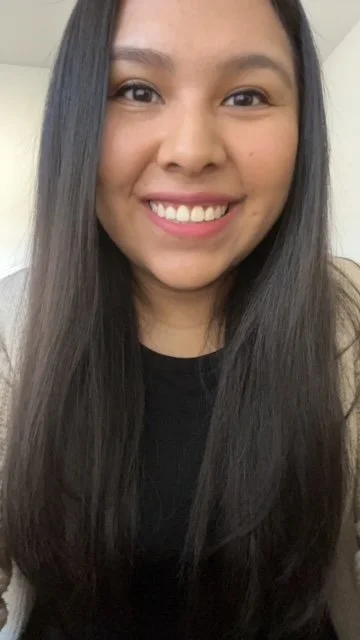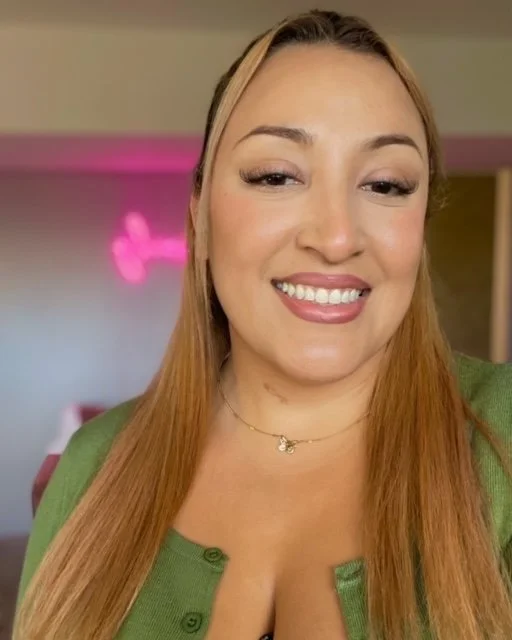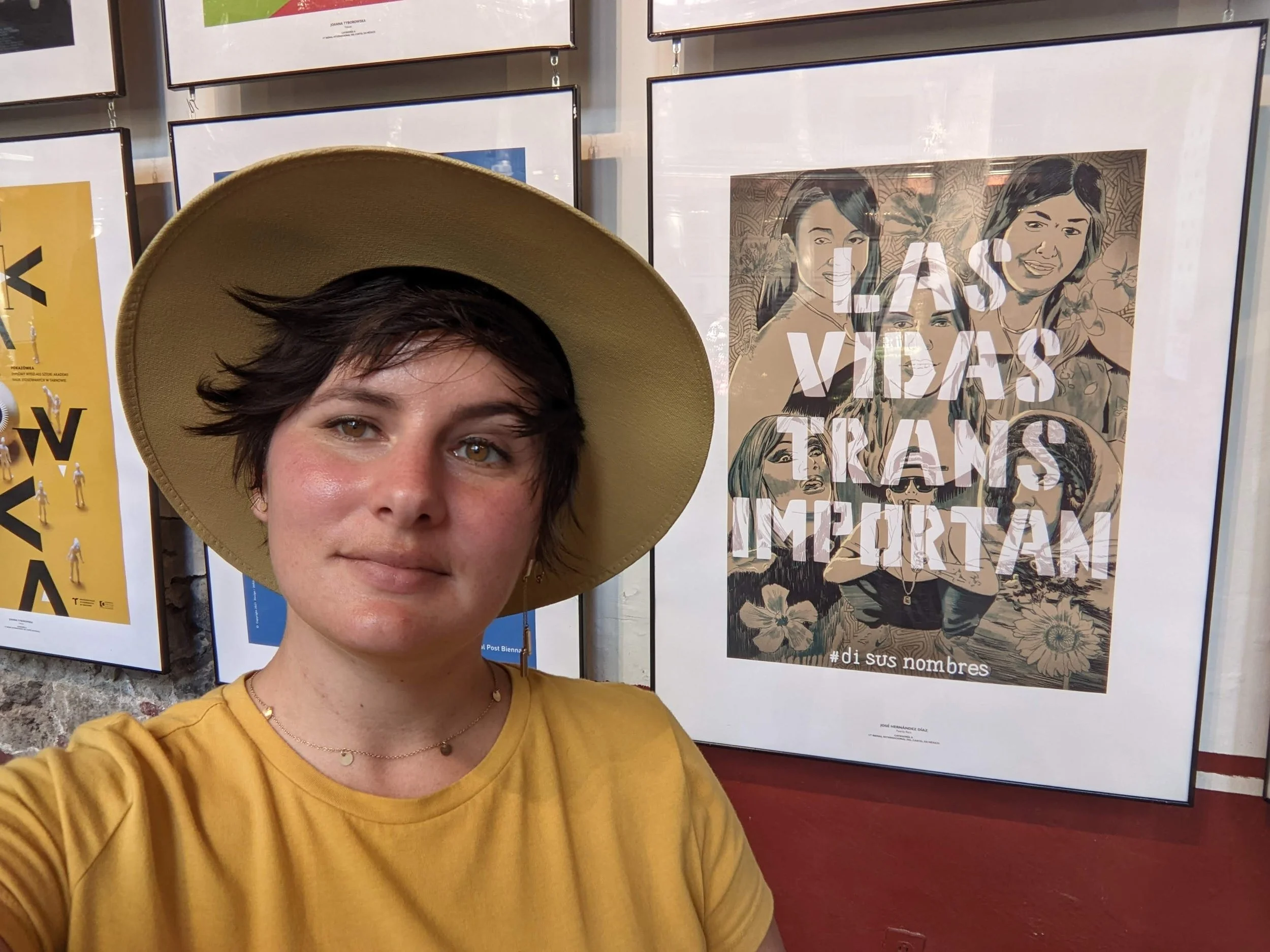Question of the Week: What does your Hispanic heritage mean to you?
by Cole Goodwin and Julie Zapien
The Dalles, Ore.September 29, 2023 – This week’s question of the week is what does Hispanic Heritage month mean to you? We asked locals and ourselves, what it means to celebrate hispanic heritage and resiliency, while also grieving what’s been lost to assimilation and oppression.
Julie Zapien, Family Care Coordinator
Growing up in the United States as a Chicana, Hispanic heritage month is a time to celebrate my identity. Hispanics only make up a small portion of Oregon's population, so coming together as a community is essential to our identity. I feel a huge responsibility to continue my traditions and practice my culture. There are so many different people in the Latinx community who should be recognized.
My heritage feels as if it's a fragile thing I carry around in my pocket. My heritage is something lam very protective of due to the constant pressure to assimilate. I think learning the history of my ancestry has defined my story in significant way. My ancestors lived through sickness, racism, discrimination, and in fear just as many Latinx do today. I want to be apart of that change within my community.
Danielle Viajar Ramirez, The Dalles
I’m mixed race, I’m not 100% Latina. Both of my parents were farm workers. I’ve picked fruit. And my husband is Mexican and is a farm worker. But I’m very white passing. I didn’t grow up speaking much Spanish. I took classes in middle school and high school, and I mostly learned it when I was working at OCDC because I had to in order to work with those families. Nobody’s ever looked at me and been like ‘you’re latina’. So for me, this month is really just about encouraging my children more.
I’m a lot lighter. My children are a lot darker and so I worry about them. I want them to be proud of who they are. I want them to know their culture. I want them to know it’s okay to want to learn about it. I want them to speak Spanish if they can, or if they choose. But I also worry that people are going to judge them because of the color of their skin.
My oldest, when he was in third grade, there was a little boy who told him to ‘go back to Mexico’ but he said it with the f-word in there. And he was like ‘I’ve never been to Mexico.’ He understands some Spanish but he doesn’t really speak it and he’s a little jealous of his brother who get’s to be in a dual language classroom and is learning to read and write, and speak Spanish. I’m really grateful for the dual language program and I’m hopeful that people will become more accepting.
There is a lot of intergenerational trauma related to lost language and culture in latino communities especially for a lot of us who are of mixed heritage. My grandma would not speak Spanish to my Mom or my Aunts because ‘we’re in America’ and they wanted them to only speak English. I don’t think it makes you any more latina, latino, latine just because you can speak Spanish.
I don’t want my children to have to apologize for speaking or not speaking Spanish because it’s not their fault either way. This is just the circumstance they have grown up in. I don’t want them to think that they are less than anyone else or more than anyone else. But I do want them to know that it’s a beautiful thing to be multi-racial. And part of being able to teach them that has been working on myself and learning that I don’t have to be ashamed either. I don’t have to feel like I’m not good enough or brown enough.
I just want people to know that if you speak Spanish, if you are a farm worker, or not a farm worker, if you celebrate Dia de los Muertos, or if you celebrate Thanksgiving, or if you’re a blonde haired blue eyed Mexican, or your mixed race, it doesn’t make you less. And it doesn’t matter what percent you are, that’s something that came out of colonization, everyone is so concerned about percentages. But it doesn’t matter if you’re 10% or 100%, if it’s a part of your history or culture then it’s a part of you. Nobody can tell you you’re not enough. This is your blood. This is your culture.
Arturo Dominguez, Business Owner of Arturo’s Jewelry Repair, The Dalles
For me it’s the same as any other month. I have lived in America for over thirty years. For me, my life, my community, my culture, the food I eat is about fifty fifty Mexican/American. The most important thing is family.
Jasmin Huila, Juntos Program Facilitator
Hispanic Heritage Month is meaningful to me because it is a time to reflect on what it means to be Latinx in the U.S., the different intersectionality’s that Latinxindividuals have, and it is a time to honor and highlight our contributions and achievements to society. Hispanic Heritage month provides me a sense of pride for myMexican roots, brown skin, language, and culture.”
My heritage is something that I carry with me everywhere I go. It has been pivotal to who I have evolved to be, and it has influenced every aspect of my life. As an adult, I value and embrace my Mexican American heritage to a high degree, but it was not always that way. Growing up, it was challenging to decipher my identity--I didn’t feel “American” enough nor “Mexican” enough. Becoming confident of my identity was a journey that involved having mentors and friends that were willing to have raw conversations with me around identity, privilege, and oppression.
Blanca Flores, Blossomly Boutique Owner, Emprendadoras of The Gorge Facilitator
To me, Hispanic Heritage Month is a time to celebrate how far we’ve come as a community in embracing our Hispanic heritage. Personally, it also means celebrating how far we’ve come as Hispanic women. Latinas are overcoming systemic, cultural, and social barriers. We are succeeding without losing our beautiful traditions, our culture, and our identity.”
When I think of Hispanic heritage month, I think of the beautiful vibrant colors that we decorate the streets in Mexico with, the food, our families, and without a doubt our ancestors who we’ve learned so much from. Our culture is so beautiful, so celebrating its beauty in a supportive community is so magical.
Cole Goodwin, Journalist, Business Owner CCCNews.com The Dalles
Hispanic Heritage month is a time to celebrate the contributions of Hispanic and Latino Americans. But it is also a stark reminder of the impacts of colonialism on indigenous people’s. As a white-passing mixed race atine person, my relationship to my heritage has often felt complicated by the decisions made by my ancestors, my grandparents and parents who have chosen survival and assimilation over rootedness in their heritage. At times I have felt unable to claim my heritage because I have seen how my elders have so shied away from it. And I have met so many Hispanic people, especially third and fourth generations latinos that have their own version of that story.
My great grandparents were farm workers. When my mom was growing up, my Grandpa made the decision not to teach his children Spanish due to discrimination and the current political climate. He did what he thought was best to protect his family. But despite this, when my mom started school she was placed in a special education classroom simply because she was shy and brown and it was assumed she did not speak English. My grandma was livid and shocked when she found out her daughter had been put into a remedial class simply because of the color of her skin. My mom went on to become the Valedectorian of her high school.
So, while I want to be celebrating who I am this month…the history of my heritage also weighs heavy. The U.S. has a long and sordid history of scapgoating hispanic peoples. During the great depression that looked like the Mexican Repatriation and the mass deportation of 2 million Mexicans and Mexican-American citizens. During World War Two that looked like the Bracero program exploiting 4.5 million Mexican workers for cheap immigrant labor. In the 80’s it looked like racial porfiling and la migra aggressively raiding movie theaters, parks, schools, factories and fields where brown folks worked, lived, and played. Nowadays it looks like Trump’s wall, strict immigration policies, inhumane border encampments, family separation, child trafficking…Not to mention the cruel and unusual joke that is immigration “courts” which have a 1.9 million backlog of cases. It actually makes me enraged to think about how I’m paying taxes towards this… Anyway, I have to hope that things are changing. Hispanic and Latino voters are the fastest growing racial and ethnic group in the U.S. electorate. The number of Hispanic eligible voters has increased by 4.7 million since 2018, so maybe in the future, something will change. I guess we just have to remain hopeful.
But this being hispanic thing is complicated, because on one side, I love Mexican culture, food, and wisdom. I practice brujería and I celebrate Dia de los Muertos. And on the other side-being hispanic for me also means carrying a deep grief for what has been lost and the ongoing oppression, discrimination, double standards, and micro-aggressions endured by my peers.
I also think heritage is just so deeply personal to each individual. When I think about my hispanic heritage story I think about my Great Grandma and Great Aunties. I think about my Grandpa who goes by “Sip” instead of Cipriano because white people can’t say his name right. I think about the time when I was little and I asked him how he got so dark and he said: when he was a baby he got left in the oven a little too long and that’s why he got to be such a nice brown color. I think about my racist first grade teacher who made my life such hell my mom decided to homeschool me instead. And that time in fourth grade when my classmate asked if that was “my real mom” because my mom has darker skin than me. I think about taking Spanish classes in school and time spent in the kitchen learning how to make tortillas and tamales. I remember my summers spent working in the orchards; and the times spent nervously practicing my taco order in Spanish before I get to the counter and feeling like an imposter even though–this is me. This is my heritage. And I am proud to be indigenous. I am proud to come from a long line of resilient hombres, mujeres, and muxes who were born in the navel of the moon.
And I am proud to be mixed race and have genes spanning four continents. I think it just goes to show that love is a universal language, and when we learn to look at one another with the eyes of love, every color of skin, every language, every culture, can be beautiful.






